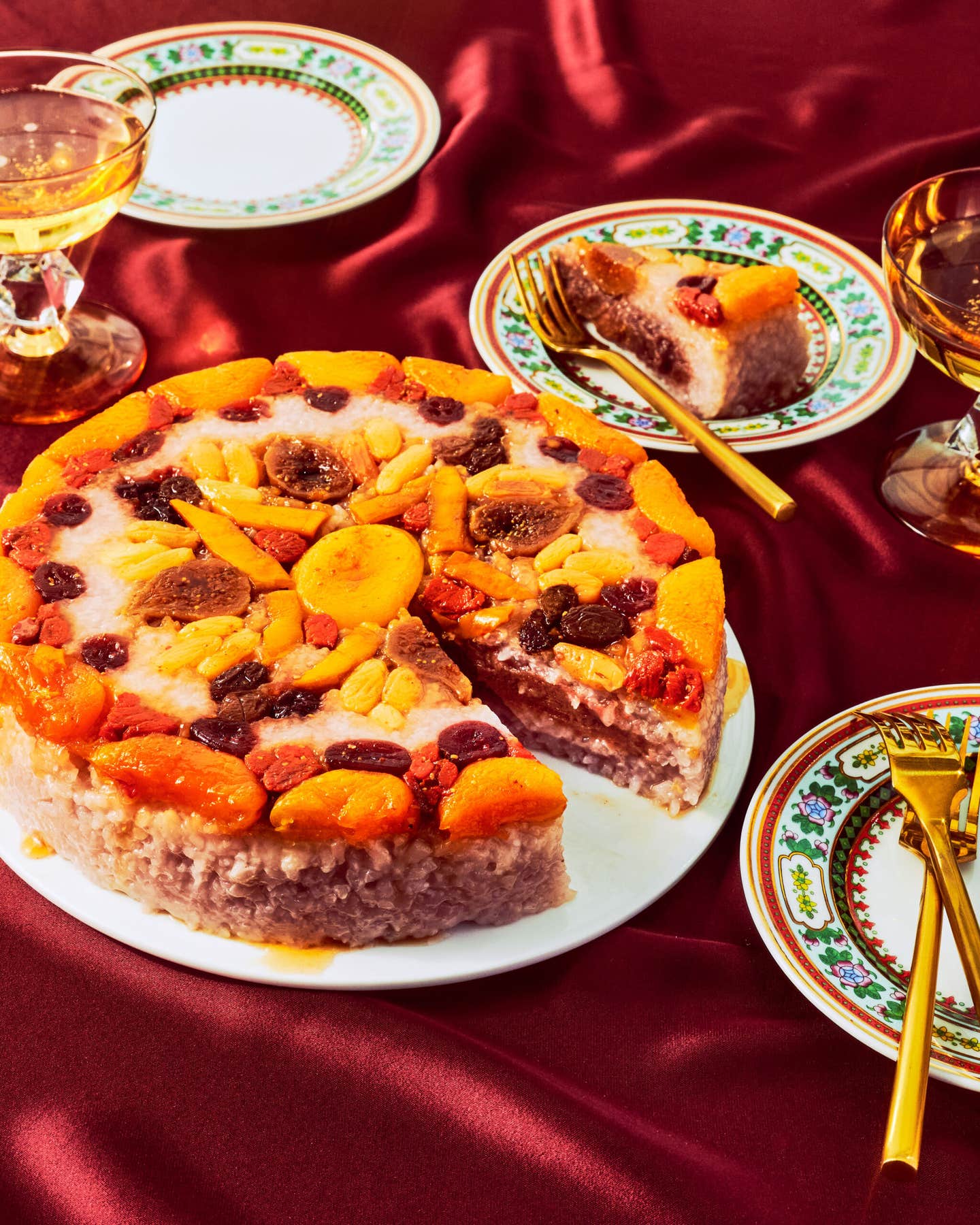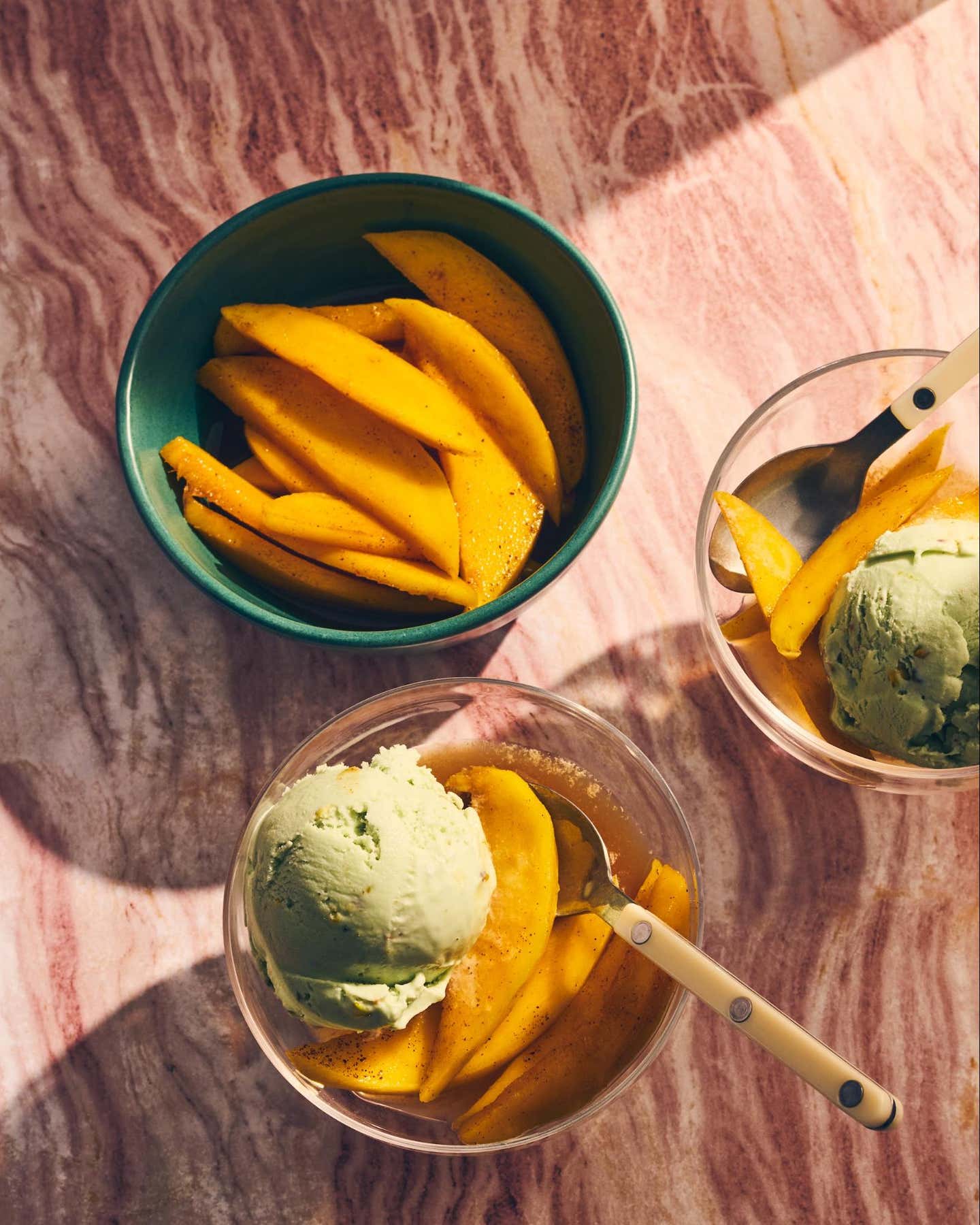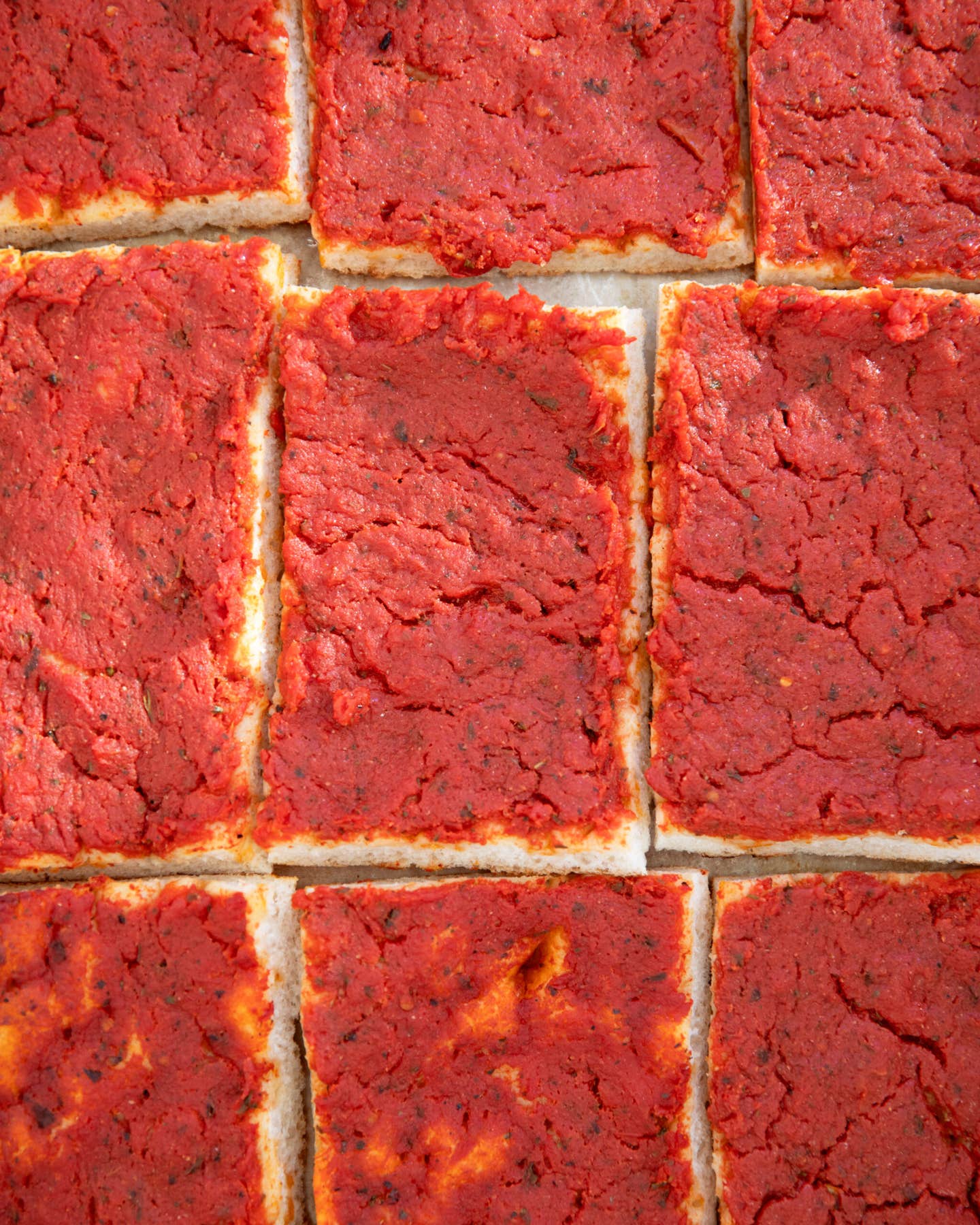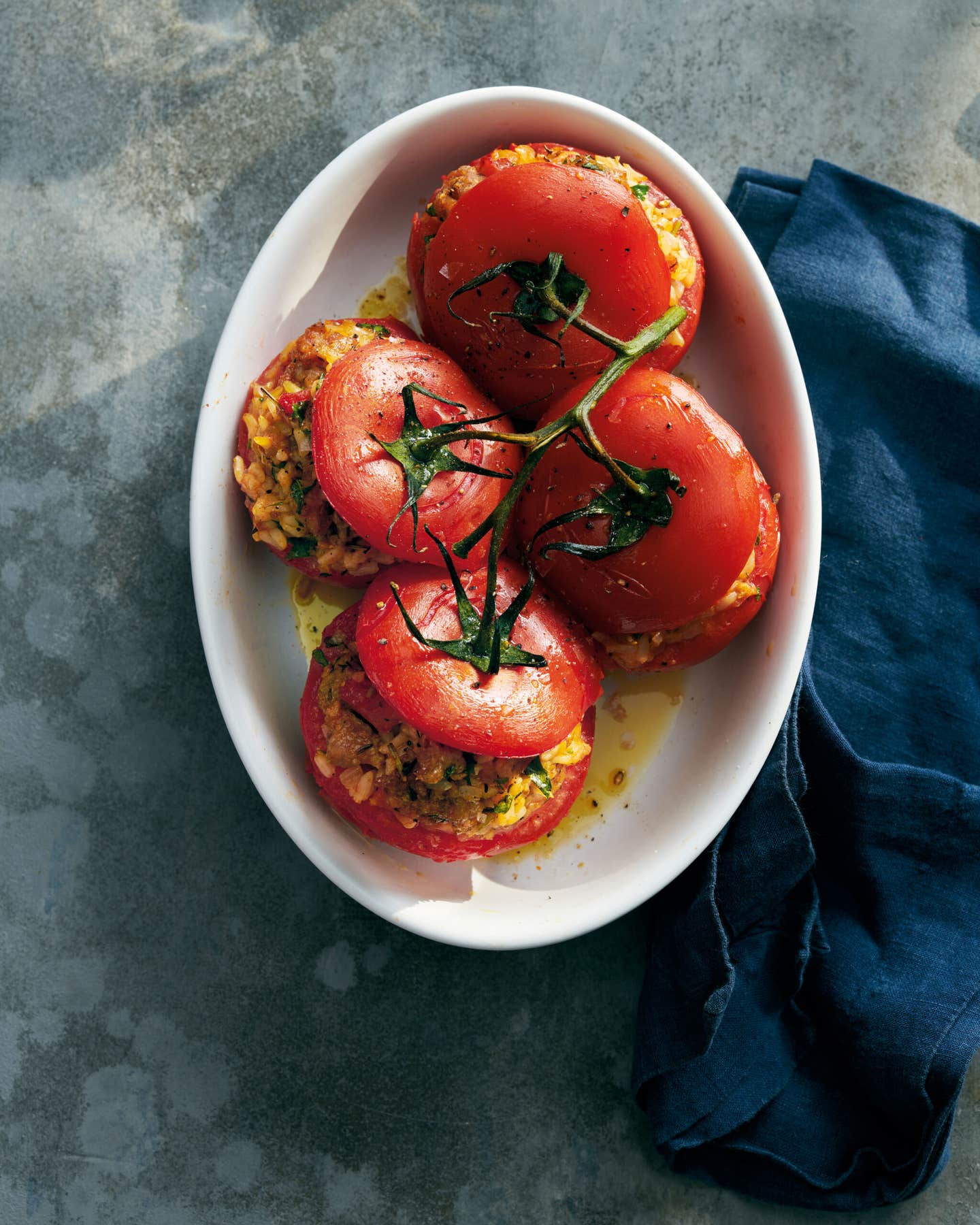
Our Best Lunar New Year Recipes for an Auspicious Feast
Invite good fortune to your table with rice cakes, spring rolls, longevity noodles, and more.
Around the world, the celebratory dishes atop Lunar New Year feast tables are as symbolic as they are sumptuous. Long noodles signify longevity, chewy rice balls stuffed with sugary paste represent sweetness, and whole fish foreshadows abundance in the year ahead. Though often called Chinese New Year for its connection to the Chinese lunisolar calendar, Lunar New Year is a lively, joy-filled celebration across much of Asia, including Korea, Vietnam, Singapore, Malaysia, and Indonesia. This year, ring in the Year of the Snake with a spread of global dishes—from crackly chả giò and chewy tteokguk, to fluffy fa gao and flaky pineapple tarts—to usher in prosperity and good fortune in the year ahead.

While these tea-stained eggs are enjoyed as an everyday breakfast or snack in China and Taiwan, they also make an eye-catching and delectable addition to any Lunar New Year table. The fragrant marinade of soy sauce, star anise, and cinnamon infuses the yolks with a satisfying salty-sweet flavor and gives the whites an antique, marbled appearance. Get the recipe >

It doesn’t get more festive than this showstopping ba bao fan, which translates to “eight treasures rice.” New York City pastry chef Natasha Pickowicz reimagines her mom’s recipe for the auspicious Chinese dessert, cooking the traditional glutinous sweet rice with dried hibiscus flowers (which tint the cake the loveliest shade of pale pink!), enriching the red bean filling with butter and five-spice powder, and lacquering the artful arrangement of dried fruits on top with a glistening syrup. Get the recipe >

At just about any festive occasion in Vietnam, you can bet fried spring rolls will make an appearance on the feast table. Known regionally as chả giò or nem rán, the snack is best dipped into nước chấm, the sweet-sour Vietnamese condiment. Get the recipe >

Break out those chopsticks for a generous platter of yu sheng, or yee sang, aka prosperity toss salad. Make the recipe chef Alex Au-Yeung serves at Phat Eatery in Katy, Texas, then gather friends and family around the table to mix the Malaysian and Singaporean staple together. The higher it’s tossed, the more blessings the new year will bring. (See Au-Yeung make the dish here.) Get the recipe >

Cook thin oval-shaped tteok, or rice cakes, in a savory anchovy broth to make what Junghyun Park and Jungyoon Choi call “one of the most significant dishes in Korean tradition.” Eaten on the first day of the new year as a tribute to ancestors, the soothing soup showcases tteok at their toothsome best. Get the recipe >

Crispy sweet rice balls filled with red bean paste and rolled in sesame seeds are a mainstay at Chinese bakeries and dim-sum restaurants, but they’re particularly auspicious as a Lunar New Year treat—round foods symbolize not only the moon, but also family togetherness. Cookbook author Kristina Cho’s recipe delivers a satisfying bite that’s crisp and crackly on the outside, and tender and chewy on the inside. Get the recipe >

In many cultures, rice cakes are symbolic of a prosperous new year, so all shapes and sizes show up at holiday gatherings. This enticing stir-fried version—a spin on a Shanghai classic—amps up the flavor with a dollop of doubanjiang, the Chinese fermented soybean paste. Get the recipe >

Crispy fried wrappers envelop a delectable pork filling in these Filipino spring rolls, a party favorite in the Philippines and among the diaspora. Chef Dale Talde serves his version with sawsawan, a vinegar-and-soy-sauce mixture laced with raw garlic and fiery chiles. Get the recipe >

Chewy dough encases a rich, earthy paste made from nuts and sesame seeds in this Chinese snack symbolizing family reunion. Families boil them to celebrate Yuanxiao Jie, also known as the Lantern Festival, which falls on the 15th day of the lunar month and marks the end of the two-week new-year festivities. Make this version from Buwei Yang Chao’s 1945 cookbook to enjoy while admiring the full moon. Get the recipe >

Sometimes called prosperity cake, fa gao is a beloved Chinese Lunar New Year treat that’s extra pretty to boot. When steamed, the tops of the cakes blossom into a flower-like pattern. In this recipe from Kristina Cho, the cookbook author lets us in on her grandmother’s clever shortcut: Bisquick, which ensures perfectly split tops and a satisfyingly soft, fluffy texture. Get the recipe >

Wrap, pleat, and boil a pot of dumplings—a symbol of wealth and prosperousness in China because of their resemblance to gold ingots—to invite good fortune in the year ahead. Pork and chives make a classic savory pairing, so fold a little extra to freeze and enjoy in the new year whenever a craving strikes. Get the recipe >

Invite good health and longevity with steaming bowls of red-braised beef noodle soup enriched with soy sauce, ginger, and scallions. This recipe from a Taipei noodle shop calls for simmering the protein for a few hours, yielding fall-apart-tender meat. Get the recipe >

For special occasions like the new year, Vietnamese families often pickle radishes in nước chấm rather than the usual brine. The flavorful liquid imparts a depth of flavor that cuts through the richness of opulent celebratory dishes. Get the recipe >

Food blogger Yi Jun Loh’s pineapple tart recipe transforms the tropical fruit into a spiced, marmalade-esque filling, then encases the jammy mixture in rich, buttery pastry. The two-bite delights—popular in Malaysia, Singapore, and Indonesia when the Lunar New Year rolls around—are perfect for hosting, gifting, and snacking. Get the recipe >

This hearty dish of caramelized, melt-in-your-mouth pork belly gets its irresistible savoriness from fish sauce and Coco Rico, a mild, coconut-flavored soda from Puerto Rico that’s common in Vietnamese cooking. Get the recipe >

Named for their impressive size, these juicy Chinese meatballs make a show-stopping addition to any festive feast. The trick to achieving their signature tender, bouncy texture? Stirring the pork mixture for at least five minutes, to thoroughly distribute fat and flavor. Get the recipe >

Enhance ground beef with chili oil for a spicy take on a Lunar New Year classic. These pan-fried dumplings are a beaut: a flour-vinegar slurry added near the end of the frying process creates a beautifully crispy “skirt” that holds the potstickers together. Get the recipe >

This stir-fried recipe calls for layering ingredients like dark soy sauce and sugar to concoct a concentrated, salty-sweet sauce that clings beautifully to noodles. Fresh mix-ins like cucumber and carrot add cheery color and satisfying crunch. Get the recipe >

Red-braised pork belly is homestyle Chinese comfort food, with two types of soy sauce and a touch of sugar giving the beloved dish its signature glossiness and deep red-brown hue. In this version from cookbook author Fuchsia Dunlop, boiled eggs make the ideal vehicle for soaking up the savory sauce. Get the recipe >

A stick-to-your-ribs Indonesian staple, this succulent number calls for slowly simmering beef in a rich coconutty sauce seasoned with aromatic lemongrass and makrut lime leaves. Serve it alongside steamed white rice to absorb the velvety gravy. Get the recipe >

Tender short ribs and collagen-rich oxtail form the bedrock of this beefy, herbaceous Vietnamese stew. Fistfuls of cilantro and Thai basil enhance the dish with grassy aroma and brightness, while red onions and scallions add a peppery punch. Get the recipe >

Sohui Kim, chef of Brooklyn restaurant Gage & Tollner, weaves a thread of French technique into her Korean galbi jjim recipe: she incorporates both red wine and soy sauce into the braise for extra depth of flavor and East-meets-West oomph. Get the recipe >

Dress tender poached pork belly with garlic, chili oil, and Taiwanese soy paste for a delicately salty-sweet dish straight from the island’s vibrant beer halls. Get the recipe >

Any feast full of rich fare needs some lighter options in the lineup for balance—like this flavorful, winter-friendly option from cookbook author Hannah Che. Her recipe utilizes the Chinese smother-braising technique—similar to red-braising—to soften squash to a luxuriously buttery texture. Get the recipe >

For a whole-fish presentation with rich, nutty flavor and smoky flair, try this grilled, Vietnamese-inspired version from Houston chef Chris Shepherd. The peanut pesto smearing the fish hits all the flavor notes: umami from the fish sauce, caramelly sweetness from the brown sugar, and brightness from the lime juice. Get the recipe >

It takes just five minutes to turn choy sum (or any other leafy green, like baby bok choy) into a garlicky, show-stealing side. Slightly bitter vegetables beautifully counterbalance any heartier dishes that might be on your banquet table. Get the recipe >

Steamed sweet rice dough flavored with brown sugar and almond extract makes a luck-filled Chinese Lunar New Year treat (nian gao is a homophone for “higher every year”). A sprinkling of toasted sesame seeds and an optional smattering of red dates elevates the treat to show-stopper territory. Get the recipe >

A whole chicken represents prosperity, so make this oven-baked Hainan-style version that calls for coating a bird generously in salt—resulting in even cooking and extra-moist meat. Get the recipe >

Bright citrus and peppery fennel enliven flaky steamed fish in this elegant banquet-table centerpiece. Follow Chinese tradition and save some leftovers for the following day as a symbol of bringing surplus into the new year. Get the recipe >

Toss slippery sweet potato noodles with soy sauce, crunchy veg, and tender, juicy beef to make this crowd-pleasing Korean party dish. At any celebration of Seollal (as Lunar New Year is called in Korea), a heaping bowl is bound to be on the table. Get the recipe >

Rice flour and grated daikon studded with lap cheong sausages are a perennially popular dim-sum order, and they make a welcome addition to any holiday feast. Serve the crisp-on-the-outside, soft-on-the-inside snack with spicy hoisin sauce for a fiery kick. Get the recipe >
Keep Reading
Continue to Next Story










